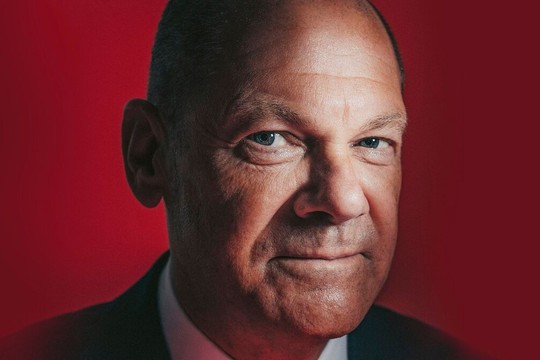Chancellor Mr Scholz
In the mid-2010s, as the European Union lurched punch-drunk from one crisis to the next, there was one constant. Germany, and in particular Angela Merkel, its chancellor, was the star around which the rest of Europe orbited. All had a point. Yet none had any way of working around Germany, writes ‘The Economist’.
Visit Brussels now, however, and all you hear is stories of German ineptitude. The dysfunction of Olaf Scholz’s three-party coalition is spilling over into Europe, complicating day-to-day business as Germany’s governing parties bicker and feud. Old alliances are being reshaped as Germany’s friends work around it.
As chancellor, Mr Scholz appears to have no aptitude for Mrs Merkel’s patient approach to dealmaking. At summits of EU leaders he states the German position and appears surprised when others fail to fall into line.
Dashed expectations of German leadership are neither new nor easily overcome. Germany’s partners more often remain disappointed.
If so, that is because they take Mr Scholz at his word when he says, as he did upon taking office in 2021, that Germany has a “special responsibility” for Europe. This is truer than ever when leadership is lacking elsewhere.
France, Germany’s traditional if sometimes wayward partner, is paralysed after Emmanuel Macron’s ill-advised decision to hold early parliamentary elections last month.
Other leaders matter on particular issues, but none can match Germany’s overall heft. And, without energetic German support, several items on the EU’s to-do list now risk slipping into limbo.
The first, enlarging the EU to Ukraine and other places, has been identified by Mr Scholz as a priority for a “geopolitical Europe”. Yet to prevent the process getting bogged down in bureaucracy, Germany must take the fight to other, more sceptical governments.
The EU will also have to reform itself as it prepares to grow, for instance by altering its expensive agricultural policies and cutting back national veto rights. Completing the capital-markets union, a worthy-but-important project that should boost private investment in Europe, and the EU’s coming discussion over whether its internal-market and state-aid rules are up to scratch amid rising us-China tensions, will also make large demands of Germany.
A weak chancellor and coalition rows are to blame. All three of Germany’s ruling parties took a pasting in last month’s European elections, and are bracing for another in state elections in September. As attention turns to Germany’s next national election, due in autumn 2025, the parties will be tempted to take their feet off the accelerator in Europe and play up their differences at home.
With geopolitical risks growing and Europe’s economy stagnating, that would be short-sighted and dangerous.
read more in our Telegram-channel https://t.me/The_International_Affairs

 11:49 02.08.2024 •
11:49 02.08.2024 •























